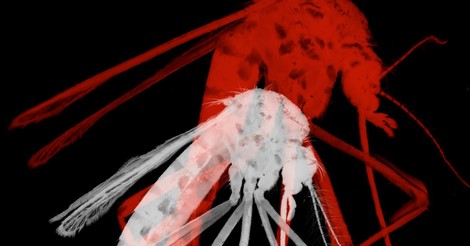Your podcast discovery platform
Curious minds select the most fascinating podcasts from around the world. Discover hand-piqd audio recommendations on your favorite topics.

piqer for: Climate and Environment Global finds Globalization and politics
I'm a freelance journalist, currently based in Madrid. I used to be a News Producer at CNBC in London before, but I thought a little bit more sun might do me good. Now I write for several news organizations, covering a range of topics, from Spanish politics and human rights for Deutsche Welle to climate change for La Marea.
Climate Change Makes Room For Mosquito-Borne Diseases In Europe And North America
Around 15 years ago, one summer night, my mother woke me up in panic in the middle of the night. She had been bitten by a centipede and, being allergic to the sting of wasps and bees, she needed me to find out if the centipede's venom was, in any way, dangerous to her.
I was a teenager and the only one in my family who could perform a relatively fast and accurate internet search in those Yahoo search days. I got up as fast as possible and ended up in a poorly designed, but detailed, bug encyclopedia. She was not endangered, and went back to sleep, but I was wide awake and stayed reading on exotic creepy-crawlies.
That's when I found out about Chagas disease: A truly terrifying illness that gets spread by an insect, called vinchuca in Spanish. Chagas disease is the stuff of nightmares. Painful, incurable and stealthy, it incubates for years or decades before the symptoms show up to kill you. Luckily for me, Chagas was limited to rural areas in South America.
In this article, Maryn McKenna focuses on a West Nile virus epidemic in Houston (Texas), but she could have chosen among many. The spread of infectious diseases to higher latitudes has become another of the myriad side effects of global warming. From dengue to zika, mosquito-borne illnesses are taking advantage of rising temperatures and moving on to new areas.
Mosquitoes are the deadliest animals for humans. As the author explains, climate change is expected to help grow their populations in areas that were traditionally too cold for them. McKenna accurately describes this process and the science behind it. Spreading this knowledge is critical for public health as times change.
And while the article is obviously thought for an American audience, the information provided can be used as well by people in Brazil or Vietnam to keep to their surroundings disease-free.
Or in Europe, for that matter.
Stay up to date – with a newsletter from your channel on Climate and Environment.
